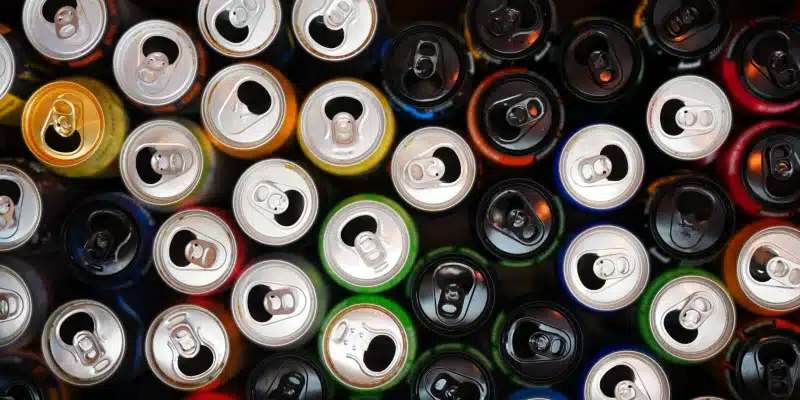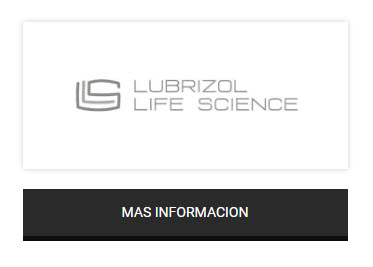Among the ingredients in an energy drink are caffeine, taurine, glucuronolactone, guarana, and B vitamins to form what manufacturers call an “energy blend.”
Energy drinks are advertised to appeal to those who exercise or need an energy boost to get through the day. Although sometimes confused with sports drinks, energy drinks are an entirely different product. They are marketed to increase alertness and energy levels, and contain significant amounts of caffeine and as much or more sugar than soda.
Main Ingredients in an Energy Drink
Caffeine
Caffeine, an adenosine receptor antagonist, is a stimulant that can influence the activity of neural control pathways in the central and peripheral nervous systems. It is the most common stimulant in energy drinks, and most contain between 70 and 200 mg of caffeine per serving. In comparison, a cup of coffee contains 110 to 150 mg for drip, 65 to 125 mg for filtered, and 40 to 80 mg for instant. Caffeinated beverages contain about 50 to 100 mg of caffeine.
Caffeine is known as an ergogenic compound that elevates heart rate and blood pressure. Adverse effects typically manifest with the ingestion of more than 200 mg of caffeine. The ergogenic effects of caffeine on athletic performance have been demonstrated, and its wide range of metabolic, hormonal, and physiological effects have been described. Caffeine has been shown to be an effective ergogenic aid for endurance athletes when ingested before and/or during exercise in moderate amounts.
Discover the benefits of sustained release caffeine
Activate subtitles in the video
Taurine
Taurine, a sulfur-containing amino acid, is the most abundant intracellular amino acid in humans and a normal constituent of the human diet. It also modulates skeletal muscle contractile function and may attenuate exercise-induced DNA damage, with some evidence showing the ability to improve exercise capacity and performance.
Taurine has many other biological and physiological functions, including antiarrhythmic, inotropic, and chronotropic effects; endocrine or metabolic effects; and antioxidant and anti-inflammatory properties, among others. However, the amounts of taurine found in popular energy drinks are far below the amounts expected to provide therapeutic benefits or adverse events.
Glucuronolactone
This is a natural substance produced in small amounts within the body. Supplementation with D-glucarates, including glucuronolactone, may support the body’s natural defense mechanism for the elimination of carcinogens and tumor promoters and their effects. Unfortunately, little research has been done on humans, and the current body of knowledge on this substance is sparse. Therefore, no conclusions can be drawn as to whether this compound is harmful or beneficial.
B Vitamins
B vitamins are water-soluble vitamins necessary as coenzymes for proper cellular function, especially mitochondrial function and energy production. B vitamins include thiamine, riboflavin, niacin, pantothenic acid, pyridoxine hydrochloride, biotin, inositol, and cyanocobalamin.
Because energy drinks contain large amounts of sugar, these vitamins are promoted as necessary ingredients for converting added sugar into energy. Therefore, B vitamins are the “key” needed to unlock all the energy provided by simple sugars, and this is the extra energy that companies claim their product can provide.
Guarana
Also known as guaranina, Paullinia cupana, and Sapindaceae, guarana is a rainforest vine that was domesticated in the Amazon for its caffeine-rich fruits and has long been used by Amazonians to increase awareness and energy. Guarana seeds contain more caffeine than any other plant in the world, with levels ranging from 2% to 8%. It also contains the stimulants theobromine and theophylline.
The amounts of guarana found in popular energy drinks are below the amounts expected to provide therapeutic benefits or cause adverse events.
Ginseng
Ginseng is one of the most popular herbal supplements in the world and is used for the treatment and prevention of many ailments. This adaptogen (a natural herbal product said to increase the body’s resistance to stress, trauma, anxiety, and fatigue) supposedly increases energy, relieves stress, and boosts memory by stimulating the hypothalamic and pituitary glands to secrete corticotropin.
Athletes use ginseng for its purported performance-enhancing attributes. The amounts of ginseng found in energy drinks are far below the amounts expected to provide therapeutic benefits or cause adverse events.
Ginkgo biloba
Ginkgo biloba extract is derived from the leaves of the Ginkgo biloba tree and has been used in traditional Chinese medicine for centuries. The extract has been reported to have antioxidant properties, modify vasomotor function, reduce blood cell adhesion to the endothelium, inhibit platelet and smooth muscle cell activation. Additionally, it affects ion channels and alters signal transduction. However, to date, no large, well-conducted randomized controlled trial has shown that it has important clinical effects in healthy or ill individuals.
l-carnitine
This amino acid is predominantly produced by the liver and kidneys to increase metabolism. Dietary supplementation with l-carnitine has been shown to increase maximal oxygen consumption and reduce the respiratory quotient, indicating a stimulation of lipid metabolism. Recent evidence indicates that l-carnitine plays a decisive role in preventing cell damage and favorably affects recovery from exercise stress. There appears to be no advantage in administering an oral dose greater than 2 g at a single time, because absorption studies indicate saturation at this dose.
Sugars
Sugars are the basic currency for energy in the body, with glucose being the key carbohydrate that skeletal muscle can easily oxidize to produce energy. Energy drinks often contain sugar (high fructose corn syrup or sucrose). Administration of glucose or other carbohydrates before, during, and after prolonged exercise has been shown to postpone fatigue, preserve muscle glycogen, and improve performance.
Ingestion of moderately concentrated carbohydrate solutions improves prolonged exercise performance and is suitable for optimizing energy and fluid supply without causing adverse effects.
Antioxidants
During exercise, inflammation and oxidative stress are linked via muscle metabolism and muscle damage. Antioxidants are assumed to support the body in the recovery phase and reduce damage to muscle cells. However, there is no convincing evidence that short- or long-term exercise modifies antioxidant requirements, nor have significant effects been demonstrated for supplementation in well-trained athletes.
Ingestion of energy drinks before an event or during training may have serious adverse effects, most notably restlessness and irritability; may increase blood pressure; and may result in dehydration. The long-term effects of energy drinks on the human body have not been established.
Limited ingestion of energy drinks by healthy individuals is not likely to cause significant adverse effects, but binge drinking or consumption with alcohol may result in adverse events. People with underlying medical conditions, especially heart disease, should consult with their physician before using them, as they may worsen their condition.
35 Brands of Energy Drinks
- Red Bull – Red Bull GmbH (Austria)
- Monster Energy – Monster Beverage Corporation (Estados Unidos)
- Rockstar Energy Drink – PepsiCo (Estados Unidos)
- Burn – The Coca-Cola Company (Estados Unidos)
- NOS Energy Drink – Monster Beverage Corporation (Estados Unidos)
- 5-hour Energy – Living Essentials LLC (Estados Unidos)
- Full Throttle – The Coca-Cola Company (Estados Unidos)
- AMP Energy – PepsiCo (Estados Unidos)
- Powerade Energy – The Coca-Cola Company (Estados Unidos)
- Mountain Dew Kickstart – PepsiCo (Estados Unidos)
- V Energy – Frucor Beverages Ltd (Nueva Zelanda)
- Lucozade Energy – Lucozade Ribena Suntory Ltd (Reino Unido)
- Shark – Osotspa Co., Ltd. (Tailandia)
- Adrenaline Rush – PepsiCo (Estados Unidos)
- Burn & Boost – Postobón S.A. (Colombia)
- Flying Horse – Ambev (Brasil)
- Boost Energy – Frucor Beverages Ltd (Nueva Zelanda)
- Sting Energy Drink – PepsiCo (Estados Unidos)
- Blue Demon Energy – La Tetera (Argentina)
- Gladiator Energy Drink – Ambev (Brasil)
- Play Energy Drink – Play Beverages (Chile)
- Power Horse – Power Horse Energy Drinks GmbH (Austria)
- Dark Dog Energy Drink – Dark Dog SA (Suiza)
- XL Energy Drink – Sinebrychoff Beverage Company (Finlandia)
- VOLT Energy Drink – Coca-Cola FEMSA (México)
- XS Energy Drink – Amway (Estados Unidos)
- Boost Original – Hindustan Unilever Limited (India)
- Speed Energy Drink – Vitale Beverages (Australia)
- Semtex – Mattoni (República Checa)
- Real Gold Energy Drink – Carabao Group (Tailandia)
- Rhinos Energy Drink – Rhino’s Energy (Sudáfrica)
- Nitro Energy Drink – Embotelladora Don Jorge S.A. (Costa Rica)
- Power Mix – Arcor (Argentina)
- Guaraviton – Proquigel (Brasil)
- Extra Power – Postobón S.A. (Colombia)
SEE MORE BRANDS

Do you want to receive more information about trends in Ingredients in your email?
Access exclusive content only for community members
Join our exclusive membership for industry professionals in food, beverage, and dairy ingredients. Access strategic information, emerging trends, networking, and personalized resources to boost your professional development and the success of your company.




